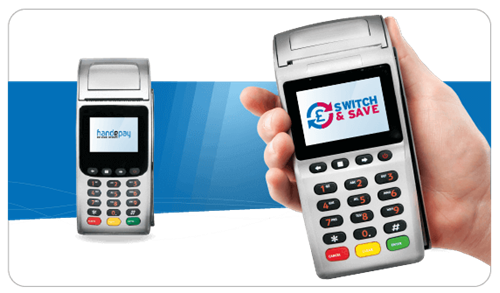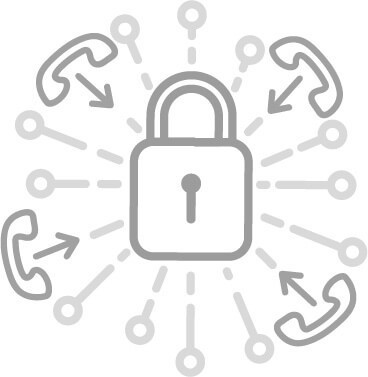What is a merchant number and why do you need one?
When it comes to accepting card payments, merchant identification numbers are a must for businesses - and as you scroll down the page, you’ll realise why they have such an important role to play.
This guide answers some of the most frequently asked questions about merchant identification numbers, describing their purpose for merchants and benefits for customers.
So, if you accept card payments (or are indeed looking to start taking card payments) - we would strongly recommend reading on to find out more.
Quick Links:
> What is a merchant number?
> Why do you need a merchant number?
> How do you get a merchant identification number?
> What is the difference between a merchant identification number and a merchant account ID?
> Where to find your existing merchant ID
> How to protect your merchant number
> Can I have more than one merchant ID?
> Other types of identification numbers
> Learn more

What is a merchant number?
A merchant identification number (MID) is a unique identifier given to you by your payment processing provider.
This code uniquely identifies you as a business when a customer makes a credit or debit card purchase.
It basically enables merchants to securely accept card payments and process transactions through their merchant account - and also verifies the legitimacy of your business to the customer’s card issuer.
With this in place, the movement of funds from the customer’s bank account to the merchant’s bank account can be facilitated.


Why do you need a merchant number?
To accept card payments, you need a merchant number. It’s a mandatory requirement.
You can’t accept transactions through your merchant account without it.
Therefore, you need to make sure that you obtain a merchant number through your payment processing provider once you’ve been set up.
How do you get a merchant identification number?
So, how do you actually get a MID code for your business?
Usually, once you open a merchant account with an acquiring bank you get your merchant ID number.
Once you’ve done that, your payment processing provider can help you to open your merchant account and issue your business with a unique MID.
And, that’s it!
Just bear in mind that if you ever switch payment processor - you’ll be issued with a new MID (so, it’s wise to keep a note of it when it does change).
What is the difference between a merchant identification number and a merchant account ID?
There is often some confusion between merchant identification numbers and merchant account IDs - which is understandable.
The key thing to learn is that they are both entirely different things.
Every business that accepts card payments (both online and offline) gets a merchant account ID from their provider once they set up a merchant account. However, businesses also need a merchant identification number as well.
For example, let’s say you run an online business that has multiple websites or online branches. Each channel of the business would have it’s own unique merchant identification number - but each would still sit underneath the same merchant account ID, because it’s the same business (and same merchant account).
The same sort of thing applies for offline businesses that have multiple premises - like retailers, restaurants and hotel chains, for example.
Where to find your existing merchant ID
Perhaps you already have a merchant ID?
As mentioned above, if you ever change or obtain a new MID code - it’s sensible to keep a note of it somewhere handy.
However, if you haven’t done that - don’t panic. There’s no need to go trawling back through a pile of paperwork.
You can usually find your MID code in one of three different places:
- Your merchant statement - you’ll usually receive this from your provider on a monthly basis.
- Your card terminal - if you know your way around the software on your terminal, you might find it digitally displayed on there.
- Your bank statement - this slightly less likely, but always worth a check.
Failing all of the above - you could always go straight to your provider.
Give them a call and they should be able to tell you your merchant number there


How to protect your merchant number
There is one particular issue that you should protect your merchant ID from - and that’s chargebacks.
Chargebacks are probably the biggest nuisance for online merchants especially, simply because of the higher risk of fraud and disputed transactions associated with online payments.
In fact, some providers may freeze or even revoke your merchant identification number altogether if your business is receiving a high number of disputes.
However, there are plenty of things online businesses can do to prevent chargebacks and protect their merchant identification number in the process.
The three main ones include:
- Address Verification (AVS) - this enables you to automatically decline/review online orders where the billing and shipping address don’t match.
- Card Verification Value (CVV) - this is a fraud filter that checks whether the card’s actual CVV number and the one entered at the online checkout match.
- 3D Secure - this is the authentication window from the customer’s card issuer. Here they are required to a password before they can proceed through the online checkout.
Can I have more than one merchant ID?
Yes - your business can have multiple merchant identification numbers.
This goes back to the merchant ID number vs merchant account ID point above. If you’re considered a multi-channel business (i.e. you have a variety of different sales channels - such as multiple websites, or outlets) you can obtain a merchant ID code for each individual revenue stream.
In fact - it’s good practice and widely considered a sensible thing to do in general. Not least because it enables you to more efficiently separate and track where different sources of income are contributing to the business.


Other types of identification numbers
In terms of other types of identification numbers to be aware of - there are a couple of notable examples that you might encounter.
- Terminal Identification Number (TID) - the specific ID code attributed to each card machine rented by your business.
- Gateway Identification Number (GID) - the specific network login code for merchants to access.
You’ll definitely want to keep a note of your GID code somewhere safe - although if you do misplace it for whatever reason, you can always normally call your payment processing provider to retrieve it.
Learn more
If you still need more information and further clarity around merchant ID numbers, then you’ve come to the right place.
Handepay has issued plenty of businesses with their unique merchant identification numbers over the years (so, it’s safe to say we know a thing or two about them!).
Feel free to get in touch if you have any specific questions about merchant accounts.

Would you like
a callback?
FIND OUT MORE
Talk to an advisor today...

